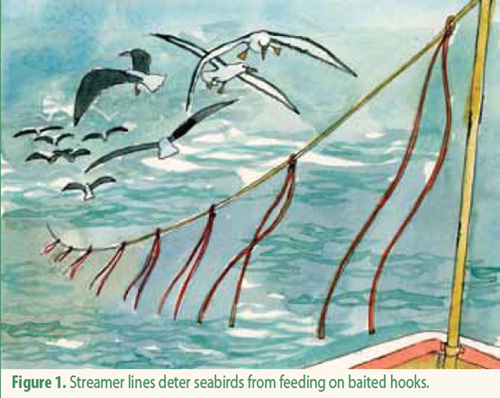The 82nd Meeting of the Inter-American Tropical Tuna Commission (IATTC) will be held in La Jolla, California, USA over 4-8 July 2011 (click here for the meeting's agenda). ACAP will be represented at the meeting by Marco Favero, Chair of its Advisory Committee.
The meeting, among other matters, will consider Recommendation C-10-02 "Recommendation to Mitigate the Impact on Seabirds of Fishing for Species covered by the IATTC". This recommendation emanating from the 81st Meeting of the IATTC held in September last year requires that longline vessels fishing for species covered by the IATTC in defined regions use at least two of a suite of listed mitigation measures.
Click here for full details of the recommendation (including the regions to which it will apply).
ACAP and BirdLife International have jointly prepared a document for the 82nd Meeting with the purpose of updating the IATTC with recent progress in pelagic longline mitigation research, including the hook pod and the underwater setting capsule currently under development and testing, both of which aim to release baited hooks below the depths attainable by diving albatrosses and petrels.
The document considers that the combined use of line-weighting, bird-scaring lines and night setting is the most effective way to reduce seabird bycatch in pelagic longline fisheries. An IATTC measure to reduce seabird bycatch should require longline vessels to use two of the three following mitigation measures in all areas in which seabird bycatch occurs:
Night setting with minimum deck lighting,
Bird-scaring (Tori) lines, and
Weighted branch lines.
With thanks to Marco Favero for information.

John Cooper, ACAP Information Officer, 2 July 2011

 English
English  Français
Français  Español
Español